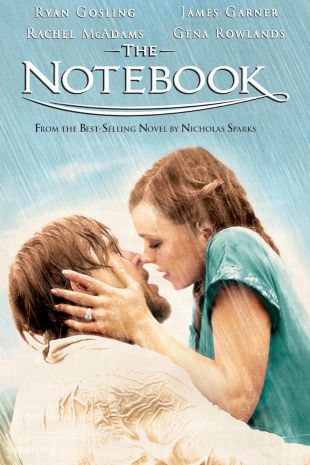
The only way The Notebook resembles anything on Nick Cassavetes's resumé is that it features his mother, Gena Rowlands. But this departure is a good thing. Too fixated early in his career on (poorly) imitating the gritty mannerisms of his father, iconoclast filmmaker John Cassavetes, the younger Cassavetes gives himself over here to a lyrical romance that takes place mostly in the 1940s. The clean production design of a period piece suits him well, and while it may not be grubby-fingernails real, The Notebook carries with it an undeniable believability. Nicholas Sparks's novel contains plenty of pat scenarios, but they possess a wonderful third dimension in the hands of the film's two exciting central performers: Rachel McAdams and Ryan Gosling. Both are effortlessly charming and likeable, giving fine personage to the young lovers who struggle against society's expectations of them. McAdams in particular is a revelation, proving as effective a flawed protagonist as she was an icy backstabber in Mean Girls -- though this is much subtler work. Adults who see The Notebook as a teen romance, despite its wartime setting, should be heartened by the Oscar nominees who fill out the cast, as Joan Allen and James Garner join Rowlands to add credibility. Although the framing story involving Garner and Rowlands sometimes seems like a distraction, it has a fulfilling enough resolution to work in concert with the main narrative. The constant between both time periods is Cassavetes's camera, which has the liberated feel of a child breaking free from his father's influence. John Cassavetes may not have shot many rowboats on swan-filled lakes, but his son seems to have matured to the realization that this, too, is a legitimate form of honest storytelling.
